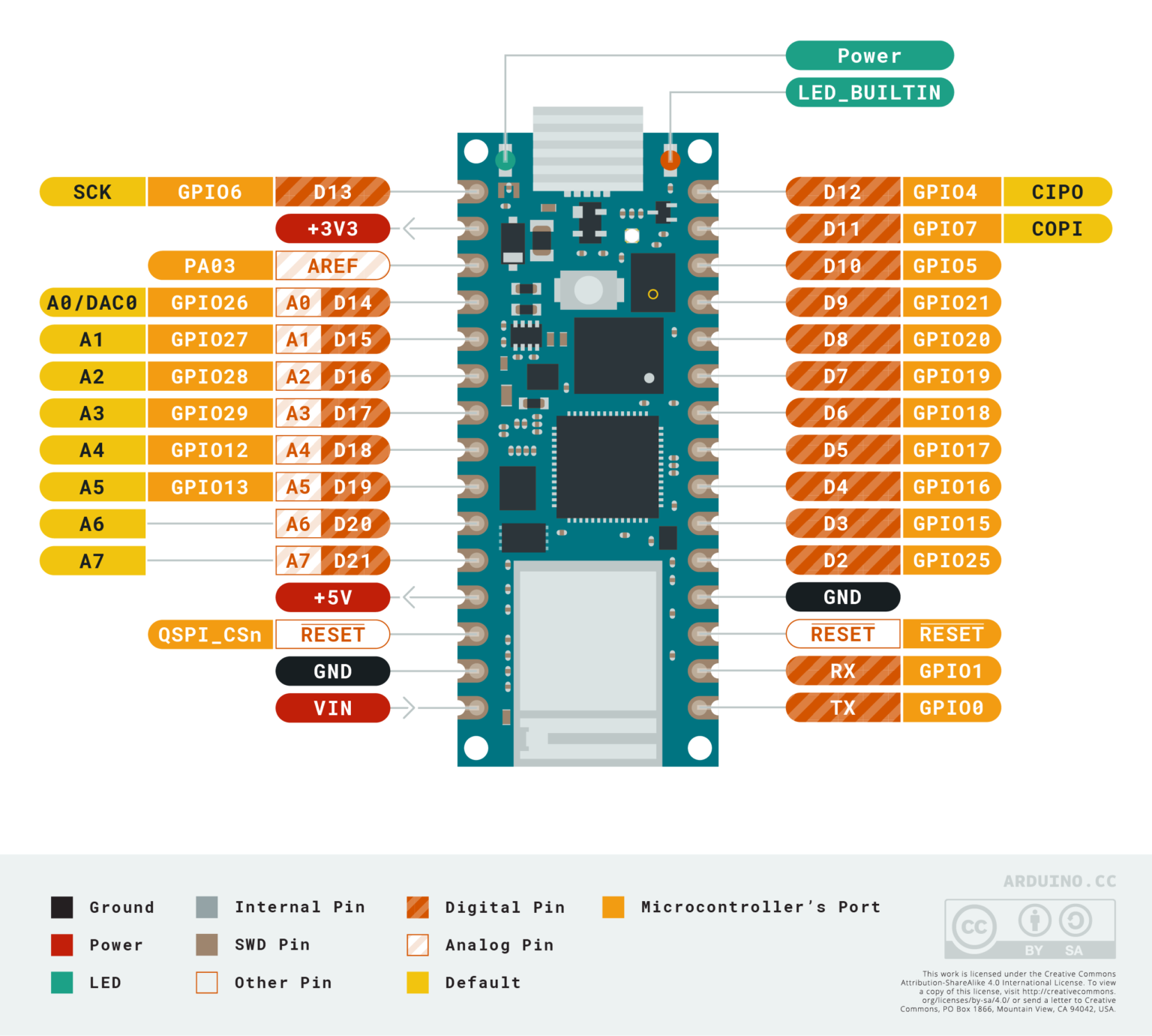

At first glance, it's similar to the original Nano. Today we are looking at the Arduino Nano Every, part of a new range of Nano form factor boards released mid-2019. Alongside clones of the Arduino line-up, many companies have brought out new development boards featuring different chipsets and features, along with libraries providing compatibility with the Arduino integrated development environment (IDE). Since the launch of the first Arduino board in 2006, a lot has changed. Here’s a list of the main cookies we use, and what we use them for:Įach web browser handles cookie management differently, please follow instructions for your chosen browser:
#An introduction to arduino nano pinout how to#
Each browser is different, so check the ‘Help’ menu of your particular browser (or your mobile phone’s handset manual) to learn how to change your cookie preferences. If you’d prefer to restrict, block or delete cookies from or any other website, you can use your browser to do this. Our cookies don’t store sensitive information such as your name, address or payment details: they simply hold information about how you use our site so we can improve your experience and resolve any errors. To make full use of enjoy the personalised features and ensure the websites works to its full potential, your computer, tablet or mobile phone will need to accept cookies. (Information Commissioners Office) Our Cookies Policy Using such technologies is not, therefore, prohibited by the Regulations but they do require that people are told about cookies and given the choice as to which of their online activities are monitored in this way. The use of cookies and similar technologies have for some time been commonplace and cookies in particular are important in the provision of many online services. At we use cookies to personalise your experience and help us identify and resolve errors. Cookies are tiny data files stored in your web browser when you visit a website.


 0 kommentar(er)
0 kommentar(er)
